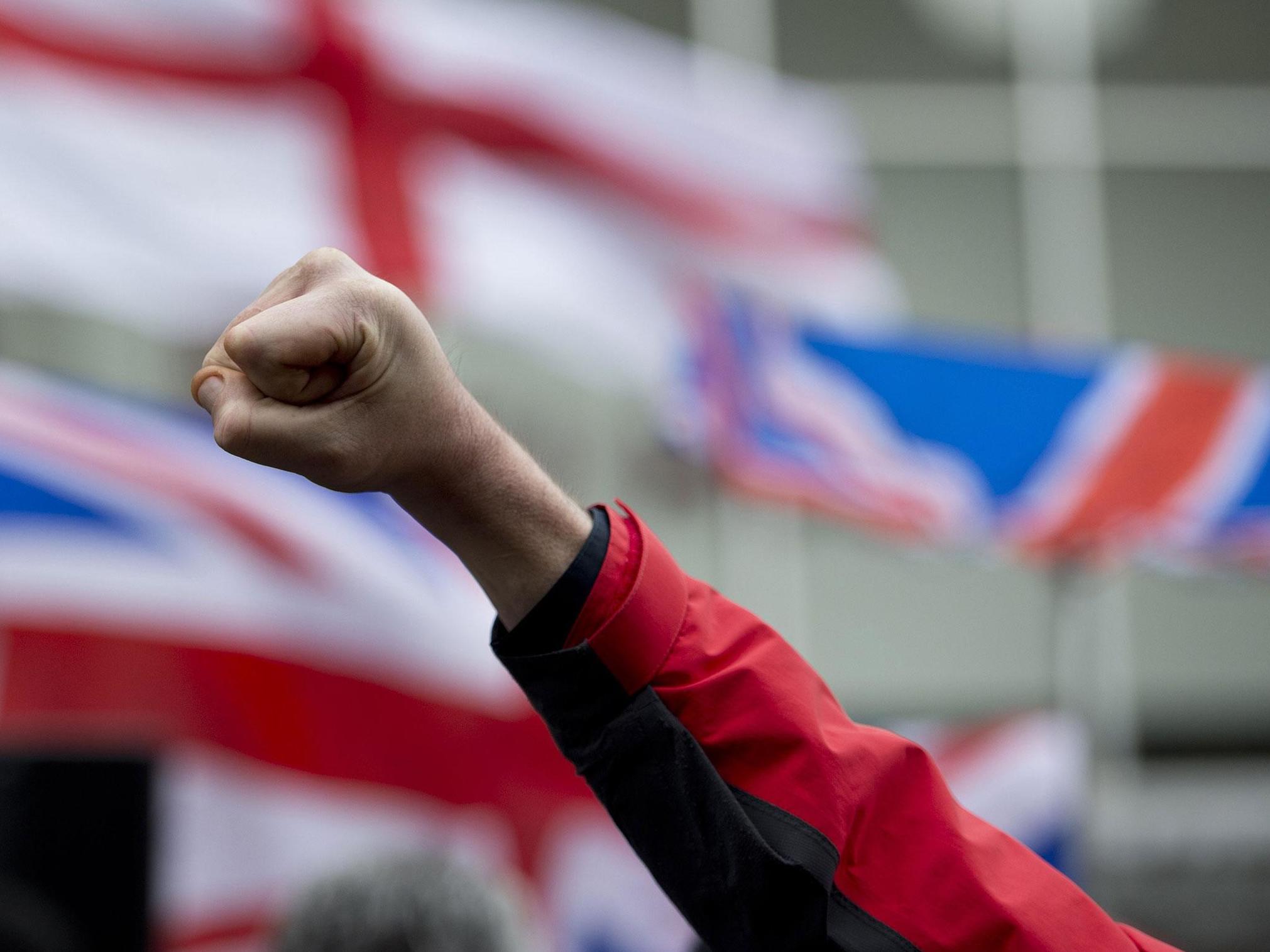British men suffering Islamophobic abuse because they 'look Muslim', reveals research
Exclusive: Victims called terrorists or linked to Isis because of their skin colour or beards

Your support helps us to tell the story
From reproductive rights to climate change to Big Tech, The Independent is on the ground when the story is developing. Whether it's investigating the financials of Elon Musk's pro-Trump PAC or producing our latest documentary, 'The A Word', which shines a light on the American women fighting for reproductive rights, we know how important it is to parse out the facts from the messaging.
At such a critical moment in US history, we need reporters on the ground. Your donation allows us to keep sending journalists to speak to both sides of the story.
The Independent is trusted by Americans across the entire political spectrum. And unlike many other quality news outlets, we choose not to lock Americans out of our reporting and analysis with paywalls. We believe quality journalism should be available to everyone, paid for by those who can afford it.
Your support makes all the difference.Non-Muslim men living in the UK have suffered verbal, physical and emotional abuse because they “look Muslim,” research has revealed.
Interviewees described how animal excrement had been pushed through their mailboxes and their shop windows smashed. Others said they were called terrorists or linked to Isis because of their skin colour or their beards.
The study found there were increases in hostility around the EU referendum and after terror attacks.
In research presented at the House of Commons during Hate Crime Awareness Week, Dr Imran Awan and Dr Irene Zempi argued the experiences of non-Muslim men suffering Islamophobia because they look Muslim remains invisible, both in official statistics and academic research.
“Although it’s a case of mistaken identity, Islamophobic abuse should not be happening in the first place,” Dr Awan, Associate Professor of Criminology at Birmingham City University, told The Independent.
He said the research showed how perpetrators of hate crimes target their victims “based on prejudice and stereotypes”.
The researchers interviewed 20 non-Muslim men aged between 19 and 59 from black, white and Asian backgrounds. They included those from the Sikh, Christian and Hindu faiths, as well as atheists. Their responses were made anonymous in order to prevent them from being identified.
They found hate crimes would spike around “trigger events” such as terror attacks or the EU referendum.
One interviewee said they were sent a message on social media reading: “Vote Out. Kick out the Muslims.” Another said after Brexit they were told: “Today is the day we get rid of the likes of you.”
Others said they noticed an increase in harassment after Islamist terror attacks around the world.
“Every time there’s a major terrorism incident there’s a sharp rise in hate directed at me and my family,” one person told the researchers.
Another agreed, adding: “Sadly the overall situation is deteriorating. Islamophobia is having an increasing impact on the lives of Asian men who look Muslim. The hatred that lies behind Islamophobia is spreading.”
New figures released by the Home Office support their findings, showing hate crimes rocketed by around a third in the UK in the past year, with the police recording unprecedented spikes around the EU referendum and terror attacks.
Some argued Donald Trump’s administration and its stance towards Muslims had promoted and encouraged anti-Muslim sentiments.
“I’ve noticed that abuse has increased on social media after Trump coming into power,” one said. “I’m on a lot of sites having discussions with people, and I find that racism and Islamophobia are very prevalent. Trump’s views are very extreme, like banning Muslims to enter US. You could not make this up five years ago.”
Another said: “Trump really changed everything, didn’t he? He is so blatantly racist and anti-Muslim that he changed the climate completely.”
Victims told the researchers they were targeted because they were perceived to “look Muslim,” with one called a “traitor” and “ginger terrorist” because of his beard. “They think I’m Muslim, a convert to Islam, but I’m not, I’m an atheist,” they said.
Another said: “It’s happened to me ever since I grew a beard. I’m not a Muslim but people stare at me because they think I am. After the Woolwich terrorist attack, people kept giving me bad looks.”
Others said they felt their skin colour led to them being perceived as Muslim. One described being on a train when someone shouted “f*** off you P**i Muslim!” They said when they replied to say they weren’t Muslim, the attacker laughed and said “you all look the same.”
One person was told: “You’ve killed innocent people, go back to Syria, you Isis terrorist.”
The interviews revealed the emotional and psychological impacts suffered from experiencing anti-Muslim hate crimes.
Many of those interviewed reported suffering from anxiety, depression and physical illness as a result of the abuse. “We live in fear every day,” one person said. “We face abuse and intimidation daily but we should not have to endure this abuse.”
Victims also said they felt loneliness and isolation after they were abused in public and no one came to help them. Some said being abused led them to suffer from depression, eating disorders and sleeping problems.
Dr Awan and Dr Zempi’s recommended a public awareness campaign on how to report hate crimes, as well as training and workshops to teach bystanders how to respond if they witness hate crimes.
They also suggested a social media app which could be used to report abuse online and give advice on what constitutes a hate crime.
Join our commenting forum
Join thought-provoking conversations, follow other Independent readers and see their replies
Comments